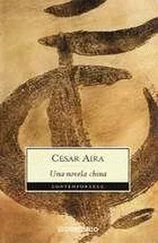After a certain age, doubt threatens the perfection of the body. Assessing ourselves objectively is difficult because we continue to think of ourselves as adolescent, and others always have a reason to lie. Perfection becomes a longing, sometimes all-consuming. We would do anything to achieve it, we really would: any diet, any exercise. We would not shrink from any effort. But we don’t know what that “anything” is and have no way of finding out. If we ask ten people, we get ten different answers. And thus we squander the most genuine of longings. We would do whatever was necessary. . if we knew what that was. But we don’t.
As a result, perfection has to find its own way. We can’t find perfection. The miracle is that it happens at all. Life is generous that way, it always is.
If the preceding text were a riddle, I would not need to provide the answer, not even written upside down at the foot of this page, because any reader could have guessed it right away: love. Love, the portentous coincidence, the surprise, the flower of this world.
Until now, I have been drawing a portrait of a character who represents me in more or less fair and realistic — even if partial — terms. Until now, he could have been taken for a cold, clear-headed scientist writing a well-reasoned memoir in which even emotions take on an icy edge. . To complete the portrait, though, we would need to paint in a background of passion, so alive and excessive that it makes the rest tremble.
It would be counterproductive to go into too many details, so I won’t. I know myself and I know that the triumph of my false modesty when I sit down to write would translate into such absurd fairy tales that I don’t know where it would end up. I’ll say only what’s most basic; better: I’ll sketch it out.
Years ago, in this same city, at this same pool, I met a woman and fell in love with her. I couldn’t and didn’t want to commit myself, so I returned to Buenos Aires and my life there, but I couldn’t forget Amelina. I should add that we did not remain in touch, not even epistolary touch, because when I left I forgot to write down her address — a meaningful lapse. To tell the truth, I didn’t feel I had the right to love her. She was young enough to be my daughter, she studied literature, and she was innocent in a way that is difficult to describe. As for me, I was married, with children, dedicated to my secret scientific endeavors that forced me into Machiavellian contortions. . What kind of future could we have? The opportunity passed, and by the same token, didn’t pass. Amelina’s love continued to reside within me and remained a constant source of inspiration. Now, upon my return, I thought of her. . But Amelina didn’t appear. She was still living in the city, as I discovered by accident, and she must have read in the newspapers of my presence, but she kept her distance. She was avoiding me. I understood and accepted. Moreover, I wasn’t even sure I’d recognize her if I saw her again. A lot of time had passed, she’d probably gotten married. .
It was an old story, older than she was in reality. When I met Amelina, it was love at first sight, overwhelming, a whirlwind. . This was because the current carried me way back, back to a time when I, too, had loved. By the time I met Amelina, I was already a grown man, I had lost almost all hope, I felt defeated, I believed nothing could bring back my lost youth. And nothing did, obviously. But when I saw Amelina, I miraculously recognized in her features, her voice, her eyes, a woman who had been my great passion when I was twenty. I had loved the beautiful Florencia to despair (ours was an impossible love) with all the madness of adolescence, and I never stopped loving her. It wasn’t meant to be, we took different paths, she got married, I did too, we lived in the same neighborhood, sometimes I saw her walk by with her children as they were growing up. . Twenty years passed, thirty. . She gained weight, that delicate and shy girl I had adored turned into a mature woman full of middle-class respectability. . She must be a grandmother by now. How incredible! How life flies by! For the heart, time doesn’t pass.
Florencia had been reborn, in all the splendor of her youth, in the sweet Amelina, whom I had had to cross a continent to find. I sensed their resemblance in the smallest of details, in the most intimate folds of their smiles, or of their dreams. The coincidence spanned a lifetime, and in the magical wonder it brought me, I found the justification for my work: during the years following my encounter with Amelina, my Great Work took off, embarked on a definitive direction, and I began to see the fruits of my labor. She was my Muse.
All well and good. On Thursday afternoon, I was dozing in my lounge chair by the pool when suddenly something made me lift my head and look around. At first it didn’t seem like anything very special was going on: the few bathers who were often there at that time of day were quiet, some conversed in low voices, several children were playing in the water. In the sky: the omnipresent turkey vultures. Nevertheless, I could feel it: something was stirring in that uneventful calm. . I knew I was in a prophetic state, as if possessed. What was about to happen was already happening. I leapt up, light and heavy at once, a statue made of floating metal, and walked over to the edge of the deck. On the other side of the pool, right in front of me, rose a living statue. I have never felt so naked. It was Amelina, larger than life (or smaller?), in subtle colors that seemed to have been gleaned from the noontime shadows. She looked at me. I understood that I was hallucinating because I saw her as she had been so many years before, almost a child who was discovering me with all the surprise of a romantic adventure. But she was real, or there was something real about her. There’s always something real in what happens, no avoiding that. But her skin tone was too strange, as was the light that outlined her figure, which seemed set apart from the atmospheric light. This was due, I noticed with amazement, to the fact that her figure projected no shadow onto the ground. Instantly, in a very rapid psychic sequence, I realized that I also had no shadow and that the sun had disappeared from the sky, which I confirmed when I raised my eyes. The perfectly blue sky of four o’clock in the afternoon, without a single cloud. . had no sun. It had evaporated.
I looked again at Amelina. Monumental transparent shapes in continual metamorphosis were rising from the water in the pool that separated us. I thought it was another Macuto Line, the one of dreams, the private. .
Suddenly, Amelina disappeared, the shapes melded into a horizontal wave, and the sun was once again shining in the sky. My shadow stretched out in front of me once again. . My shadow, in every swimming pool in the Andes.
I couldn’t help glancing up at the mountains in the vicinity of where I had left the cloning machine. That gesture had the virtue of returning me to reality. At least I could be sure that what was happening there was not a dream. No matter what strange paths my thoughts might take, the process would continue, independently of me, though subsequently I would take charge of it. That, however, would be a kind of epilogue; in itself, the Great Work consisted principally of me abstaining from all and every intervention, of achieving a parallel trajectory of absolute integrity.
There is another coincidence on another level: that between the velocity of thought and thought itself. This is the same as saying that the Great Work — the creation of the individual — is exactly what is accomplished during a life span at that constant velocity. In a certain sense, velocity is the Great Work; confusion arises about the method. Thus, my Great Work, my secret labor, is highly personal, nontransferable, nobody but I could carry it out, because it consists of the innumerable psychic and physical instants whose sequence confirms my velocity. The velocity at which I unfold through time. By becoming an individual, my work allows me to love and be loved.
Читать дальше












